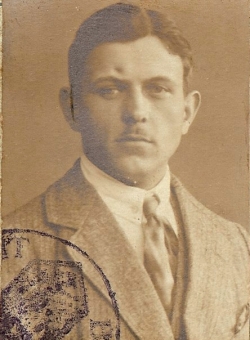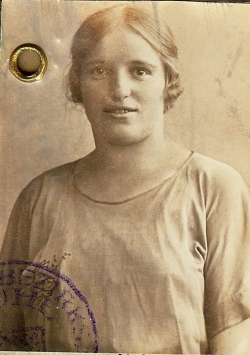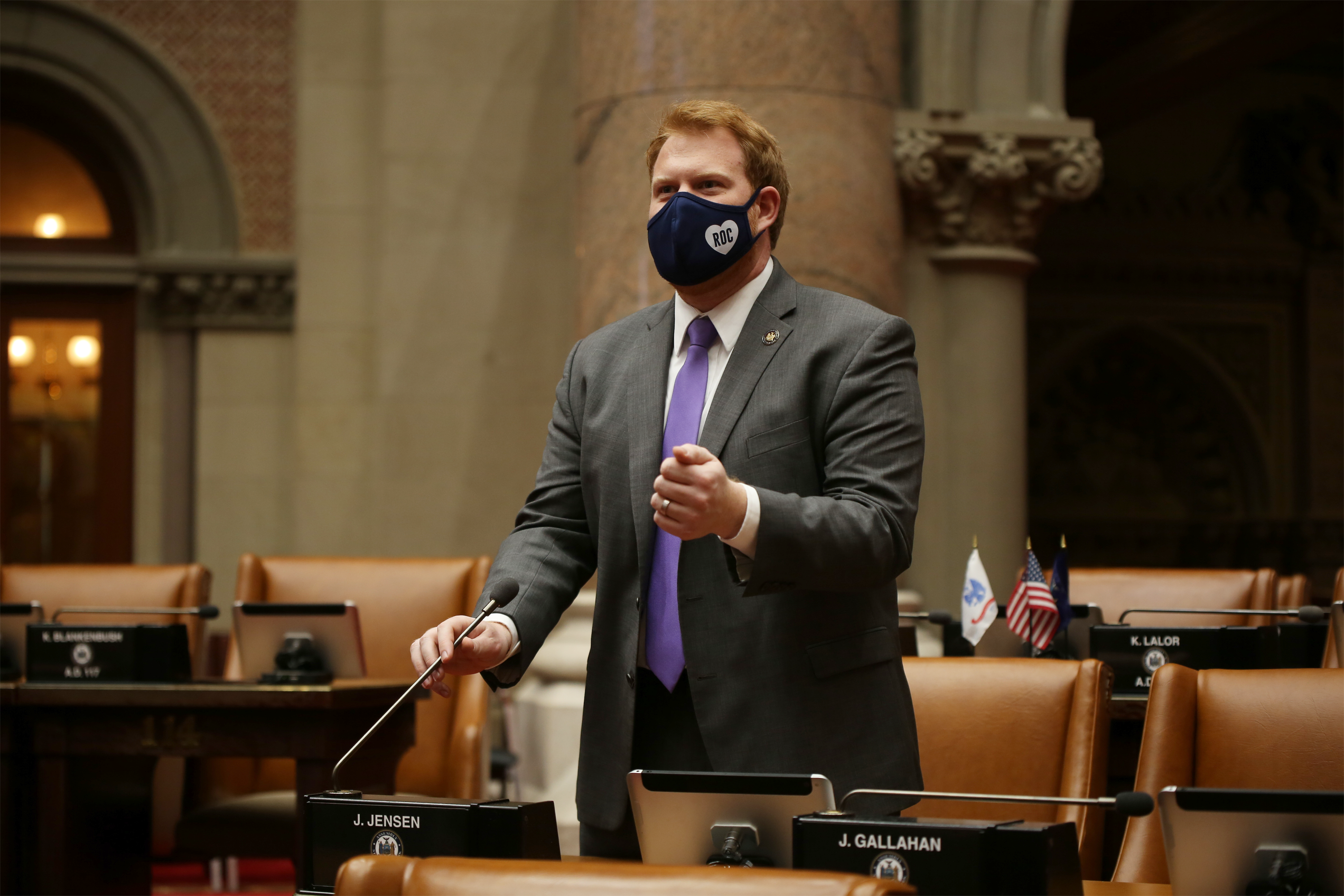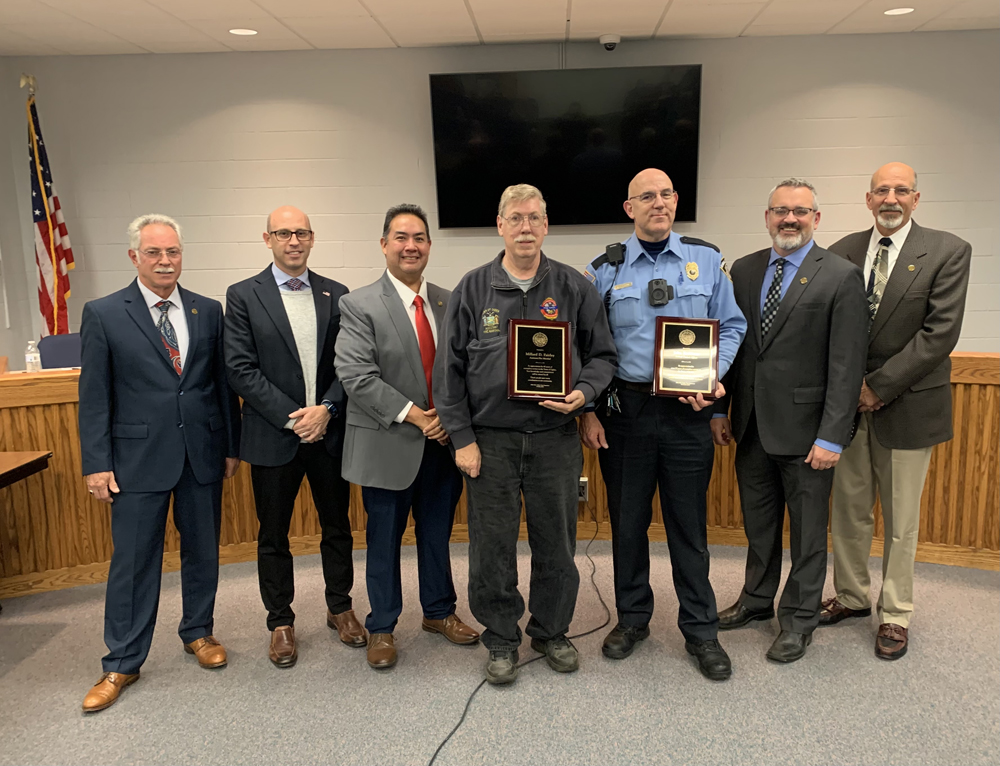Joe’s stories – old, new, mostly true
by Joe Reinschmidt
Josef immigrates first, then sends for Anna
 Josef and Anna’s German passports. Although her birth certificate shows her name as Maria Anna Aeckerle, all other documents have it as Anna Maria or just Anna Aeckerle.Born May 1, 1898, Josef was soon joined by two brothers and a sister but when he was four his beautiful mother died. No doubt there was mourning but two years later his father, Anton, married again and more siblings arrived until there was a family of eight boys and four girls. The last of them was born when Josef was 20. As the eldest son, Josef likely had some privileges but also had responsibilities which he apparently handled well. Even in later years when I first met some of my aunts and uncles, it was obvious that Josef had earned the respect and love of his siblings.
Josef and Anna’s German passports. Although her birth certificate shows her name as Maria Anna Aeckerle, all other documents have it as Anna Maria or just Anna Aeckerle.Born May 1, 1898, Josef was soon joined by two brothers and a sister but when he was four his beautiful mother died. No doubt there was mourning but two years later his father, Anton, married again and more siblings arrived until there was a family of eight boys and four girls. The last of them was born when Josef was 20. As the eldest son, Josef likely had some privileges but also had responsibilities which he apparently handled well. Even in later years when I first met some of my aunts and uncles, it was obvious that Josef had earned the respect and love of his siblings.
He grew up as a typical farm boy of that era until at age 17 when he was invited to join the Kaiser’s Army. For him it was an adventure as well as a duty. He was able to go places, and meet people he might never have seen otherwise. Being very much an outdoor person he hated the confinement of the trench warfare and readily volunteered for patrols, where he could be on his own with one or two others. On one such patrol in northern France he suffered multiple grenade shrapnel wounds to his upper body. One entered his skull just above the right eye which caused the loss of that eye. Upon recovery from his wounds and fitted with a glass eye he returned home and obtained a job with the German Railway System until he decided to immigrate. He and his brother, Leo, sponsored by their Uncle Peter, arrived in Rochester in 1923. Josef obtained work at General Railway Signal Co. at $18 a week, $10 of which he paid to his aunt and uncle for room and board. However, he said with beer at 5 cents a glass and sandwiches free at some bars, he could have a good time and even save a dime or two.
 After Josef’s return from the war, he had met Maria Anna Aeckerle, a blond maiden from the Village of Renchen which is five or six miles south of Fautenbach and is significantly larger. Like him she was from a farm family but only had six siblings. They were quite poor and despite being farmers, food wasn’t plentiful. After completing the normal 8 years of school, which for girls included cooking lessons, Anna went to live with and work for a farm family in Switzerland for a year or so. This was a common practice designed to give them some different experiences. Upon returning to Renchen she entered a sewing apprenticeship and also worked at a local cigar factory. Tobacco was a cash crop for many farmers. Much like “husking bees,” they had tobacco stringing bees which young men and women participated in. Although real work was done, they were a social event with much singing and some flirting as you can imagine. Perhaps this was where Anna met Josef.
After Josef’s return from the war, he had met Maria Anna Aeckerle, a blond maiden from the Village of Renchen which is five or six miles south of Fautenbach and is significantly larger. Like him she was from a farm family but only had six siblings. They were quite poor and despite being farmers, food wasn’t plentiful. After completing the normal 8 years of school, which for girls included cooking lessons, Anna went to live with and work for a farm family in Switzerland for a year or so. This was a common practice designed to give them some different experiences. Upon returning to Renchen she entered a sewing apprenticeship and also worked at a local cigar factory. Tobacco was a cash crop for many farmers. Much like “husking bees,” they had tobacco stringing bees which young men and women participated in. Although real work was done, they were a social event with much singing and some flirting as you can imagine. Perhaps this was where Anna met Josef.
They grew to know each other, and once they were sure it was serious, Josef told her of his intent to immigrate to the United States. He also promised that if things looked good he would send for her in about two years. He kept his word, and to spare her the experience of being processed through Ellis Island he bought a first class ticket, so she went direct from the ship to Grand Central Station wearing a tag on her coat that stated “Rochester, NY.” Hours later she was greeted in Rochester by Josef, his brother, Leo, and some of their cousins. You can be sure there was a party at Uncle Peter’s that night.




